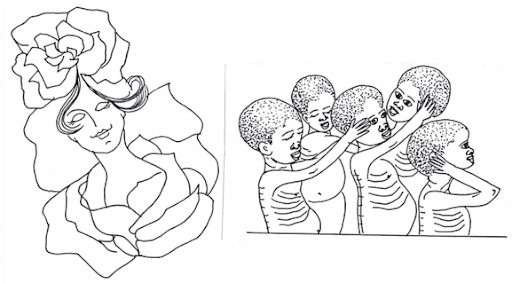“Do not ask of Me, My Love: Question and Answers” is a powerful and moving exploration of the impact of war and violence on love and relationships. The poem is written from the perspective of a speaker who is grieving the loss of their lover. The speaker is overwhelmed by their grief and they are unable to feel the same joy and passion for life that they once did. Read More Plus One English Question and Answers.
Do not ask of Me, My Love Question and Answers

Question 1.
Why does the poet plead helplessness in loving his beloved again?
Answer:
The poem ‘Do not ask of Me, My Love’ is an appeal to his ‘beloved’. Here the beloved is a metaphor for his ‘muse’, or country of his birth. The poet appeals to bis beloved not to demand the same kind of attention that he had once for her because, he has now come to realize that there are other agonies, other than ‘love’, which demand his attention. These other agonies refer to the suffering of the people that he witnessed during the two world wars and during the freedom struggle of his motherland. His pain and anguish at seeing slavery, slave trade, savagery and victimization of the poor, and prostitution for survival, find expression in this poem.
Though the ‘love’ of his beloved compels his attention, he cannot turn a blind eye to the misery and suffering of humanity around him. He does not say that he can no longer love his beloved, but he says he cannot be totally devoted to the love of his countrymen only.
Question 2.
How is the speaker of the poem ‘Do not ask of Me, My Love’ affected by the harsh realities of life?
Answer:
A casual reading of the title and the first half of the poem might sometimes mislead the reader to imagine that the poet is going to describe the beauty of his beloved in romantic imagery. However, a careful close reading of the title and the whole poem will make the reader realize that though the poet expresses a great deal of love and appreciation for the beauty of his beloved, there is a sudden transition in the poem from the poet’s personal love to the love of his people in general. This transition is caused by his increasing awareness and realization that there are many harsh realities besides ‘love’. This realization prompts him to abjure the romantic love of the beloved fora contemplation of the misery of the world.
In the first half of the poem, the speaker declares that his life looks bright and beautiful on account of his beloved. He states that when he is in her company he feels that he will enjoy eternal spring and nothing is more beautiful than the beautiful eyes of his beloved. Moreover, when he is in such a mood, if he is agonized by his love for his beloved, the misery of the world appears inconsequential to him.
However, as he became aware of the harsh realities of life like bloodshed during wars, diseases, poverty, hunger, deprivation, flesh trade, greed for money and power, etc., his belief that the love for his beloved would remain eternal, suddenly undergoes a change. He realizes that such love for an individual will be an illusion because there are many other sorrows and pleasures which demand his equal attention and love. Thus, the poet gives up his romantic love of the beloved for contemplation of the misery and other harsh realities of life.
Question 3.
What transformation in the priorities of the speaker do you see in the poem ‘Do not ask of Me, My Love’?
Answer:
As the title readily signals that there is going to be a change in the speaker’s state of mind towards his beloved, this poem presents a transition in the priorities of a romantic lover from an aesthetic enjoyment of the bliss he experiences in the company of his beloved to a benevolent expression of his ‘love’ for those people who are suffering untold miseries on account of man’s greed for wealth, power, lust and many other human vices. He realizes that his love for his ‘beloved’ is not the only one that needs his attention and contemplation in this world, but there are many other sorrows and pleasures that demand his ‘love’ and equal attention. Thus, the priorities of the romantic lover undergo a serious change. He abjures his romantic love for his beloved in exchange for contemplation and probable solace he can give to those people who are suffering untold miseries like deprivation, death, diseases, exploitation of body and mind, etc.
“Do not ask of Me, My Love” is also a beautifully written poem with evocative imagery and language. The poem is a joy to read and recite, and it continues to resonate with readers and listeners around the world.
